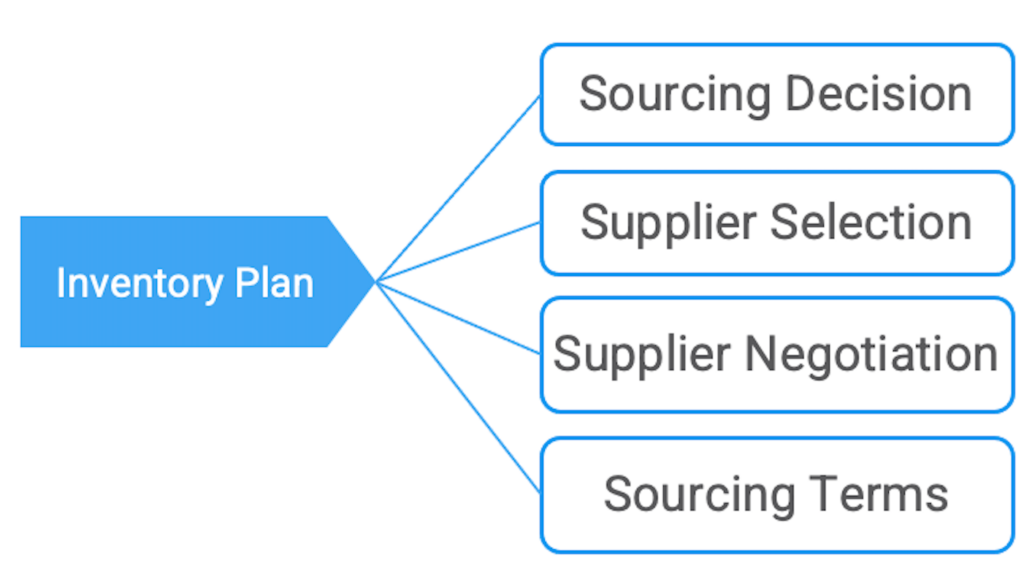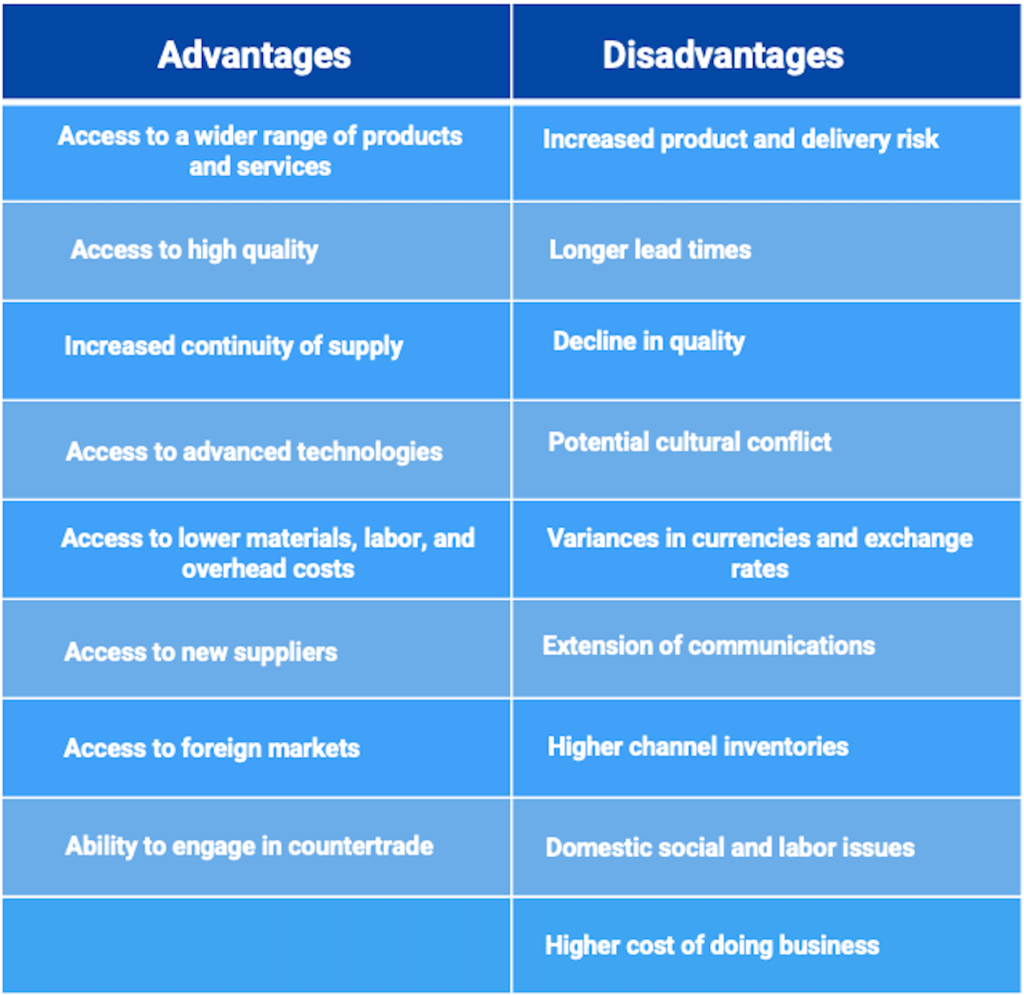The choices made regarding global sourcing have a significant impact on various aspects such as product development, cost management, adoption of new technologies, delivery reliability, flexibility and trade balance among nations. Nowadays; it has become essential for businesses to involve suppliers from across the world to maintain and enhance their competitive edge. Participating in an international purchasing decision necessitates adopting a global sourcing process.
After creating the inventory plan, buyers need to decide whether to use internal, domestic, or global sources. Global sources may be chosen due to cost effectiveness, inability to produce products internally, unavailability of products in domestic markets, lack of quality or technical expertise domestically, search for alternative suppliers, and search for cheaper alternatives.
In today’s interconnected world, it is now easier to find suppliers globally. When looking for suppliers, it is crucial to decide whether to purchase directly from a foreign supplier or indirectly through a trading intermediary. If you choose the latter, your partner will handle administrative and legal tasks. However, if you decide to purchase directly from a foreign supplier, it is your responsibility to manage activities such as supplier search, financial validation, verification of production requirements, inventory management, delivery times, and willingness to enter long-term partnerships. This process is completed once RFQs are returned from the identified suppliers.
During negotiations, it is crucial to ensure that the supplier can fulfill the proposed cost while meeting quality, volume, and delivery targets. Additionally, other negotiation points should cover transportation, duties, security restrictions, copyright protection, taxes, insurance, broker costs, inventory carrying costs, risk of damage or spoilage, fees for documentation, terminal and port costs, letters of credit, environmental concerns, and more. It’s important to address all these issues to ensure a successful outcome.
During the negotiations, it is important to establish clear and firm statements regarding the operating and administrative terms of the relationship. This includes addressing concerns such as currency valuation and managing fluctuations in exchange rates, as well as determining shipping terms, transfer of ownership, and the preferred method of payment (cash, bank draft, letter of credit, or direct bank debit). It is also important to consider the payment of tariffs or duties on imported goods. Ultimately, the outcome of the negotiation should result in a good understanding and insight about the supplier and the terms of the agreement.
Global Sourcing Advantages/Disadvantages
Engaging in international purchasing contains benefits and risks


